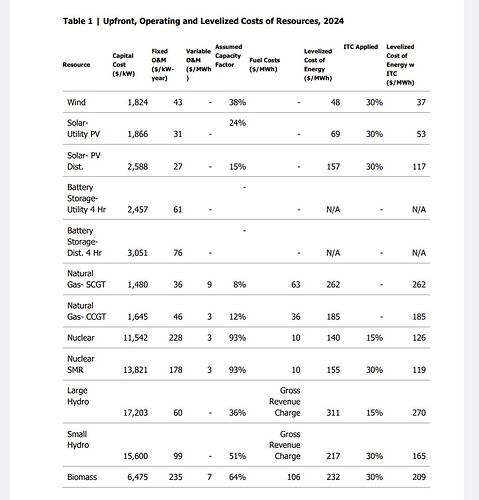Lol. I mean that’s kind of an odd question.
“Oh yeah. If EVs are so good, why did my cousin’s Tesla break down twice last month?” You know I’m Australian right?
Fortunately this stuffs all online, so I can basically look under the Tesla’s hood and give you a high level answer
Firstly. It’s because much of Ontario looks like this

Which means that solar is going to do relatively worse in Ontario than globally.
Secondly. Looks like Ontario had a big push on solar since 2009 that was poorly designed.
Third. Ontario has a huge fleet of aging but expensive nuclear. Which changes economics of solar, especially in cold climates (peak demand is heating not cooling)
Solar’s costs have dropped by about 10 times in that period, and will keep dropping.
So we need to look at current state. And what’s the best strategy for Ontario going forward.
Your regulator published this, which shows relative costs of energy types, as based on Ontario costs and conditions.
The LCOE (right hand column) is a good (if incomplete) way of measuring relative costs.
You can see wind is the cheapest, then solar, with gas, nuclear, etc much more expensive.
Unfortunately they don’t have “firmed” cost on there. Which is the cost of adding batteries to the renewables.
From what I know in other places, your firmed wind and solar are probably a little more expensive than gas and nuclear, but will keep coming down.
So the strategy for Ontario is probably
- build out as much wind as possible, as fast as possible.
- build some solar, where it makes sense without requiring significant network upgrades. Plan to build more as costs keep going down
- extend nuclear
- if there’s social license to build new nuclear and it can be done at a reasonable cost do that.
- add a fuck ton of batteries, but probably wait until costs come down further (I’m talking 2 years, not 20)
- use gas for peaking and balancing over the next decade of so and then shut it down.
This requires a lot of building, and a fair bit of government investment or a real price on carbon, but these are all established tech and solved problems
There is absolutely no need for CCS in this mix. And non of this is particularly difficult with some political will.

